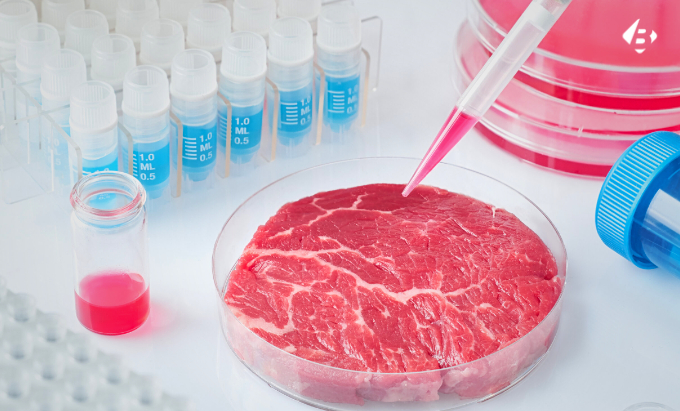
For centuries, meat production has relied on animal agriculture, raising ethical concerns and environmental consequences. But a new era is dawning, driven by cutting-edge technology that promises to revolutionize the way we consume meat: lab-grown meat. This innovative technology has the potential to disrupt the entire food industry, offering a sustainable, ethical, and potentially healthier way to enjoy meat without harming animals or damaging the environment.
The Science Behind the Bite:
Lab-grown meat, also known as cultured meat or cellular agriculture, is produced by isolating animal cells and replicating them in a controlled environment. This process involves:
- Cell selection: Scientists extract muscle cells from a live animal through a minimally invasive procedure.
- Cell proliferation: The cells are placed in a nutrient-rich environment, where they multiply exponentially.
- Scaffolding: The cells are encouraged to grow into 3D structures resembling muscle tissue using biocompatible scaffolds.
- Differentiation and maturation: The cells are exposed to specific signals, prompting them to differentiate and mature into muscle fibers.
The Ethical and Environmental Advantages:
Lab-grown meat offers several compelling advantages over traditional meat production:
- Animal welfare: Eliminates the need for animal slaughter, significantly improving animal welfare.
- Reduced environmental impact: Produces significantly less greenhouse gas emissions, water usage, and land degradation.
- Enhanced sustainability: Reduces the need for animal agriculture, which contributes to deforestation, biodiversity loss, and soil depletion.
Potential Health Benefits:
Lab-grown meat could also offer potential health benefits:
- Reduced risk of foodborne illnesses: Cultured meat can be produced in sterile environments, potentially reducing the risk of contamination from bacteria and pathogens.
- Tailored nutrition: The nutrient profile of lab-grown meat can be adjusted to provide specific nutritional benefits for different dietary needs.
- Reduced antibiotic use: By eliminating the need for large-scale animal agriculture, the use of antibiotics in livestock can be significantly reduced, mitigating the risk of antibiotic resistance.
Challenges and the Road Ahead:
Despite its potential, the development of lab-grown meat faces some challenges:
- Production costs: Currently, the cost of producing lab-grown meat is higher than traditional meat. However, advancements in technology are expected to bring down costs significantly.
- Regulatory hurdles: Establishing regulatory frameworks for lab-grown meat production and ensuring its safety for human consumption is crucial.
- Public acceptance: Consumer awareness and acceptance of lab-grown meat need to be carefully addressed through education and outreach programs.
A New Frontier for Food:
Lab-grown meat represents a transformative step towards a more sustainable and ethical food system. By addressing the current challenges and fostering collaboration among researchers, policymakers, and industry stakeholders, we can unlock the full potential of this revolutionary technology. As the technology matures and becomes more accessible, lab-grown meat has the potential to change the way we produce and consume meat, paving the way for a kinder, greener, and healthier future.
Join the conversation and share your thoughts on the future of lab-grown meat. Together, we can shape a more sustainable and ethical food system for generations to come.
Lab-grown meat is a fascinating leap into a more sustainable and ethical food future. The potential to reduce environmental impact, improve animal welfare, and offer tailored nutrition is truly groundbreaking. Exciting times for the intersection of technology and sustainability!
The concept of lab-grown meat not only addresses ethical concerns related to traditional meat production but also presents an opportunity to redefine our relationship with food. The environmental benefits, coupled with potential health advantages, make this technology a promising avenue for a more conscientious and sustainable diet.
Lab-grown meat is a game-changer in the quest for sustainable and ethical food sources. As technology advances, it’s heartening to see solutions that align with environmental conservation and animal welfare. Overcoming challenges and fostering public understanding will be key to ensuring widespread acceptance.
The emergence of lab-grown meat opens a door to a future where we can enjoy meat without compromising our values. It’s encouraging to witness advancements that address ethical, environmental, and even potential health concerns associated with traditional meat production. Excited to see how this transformative technology evolves!
Hi Kristina,
While I appreciate the potential benefits of lab-grown meat, I also believe there are concerns and discussions surrounding its long-term impacts on health and sustainability. It’s crucial to weigh both sides as this transformative technology develops.